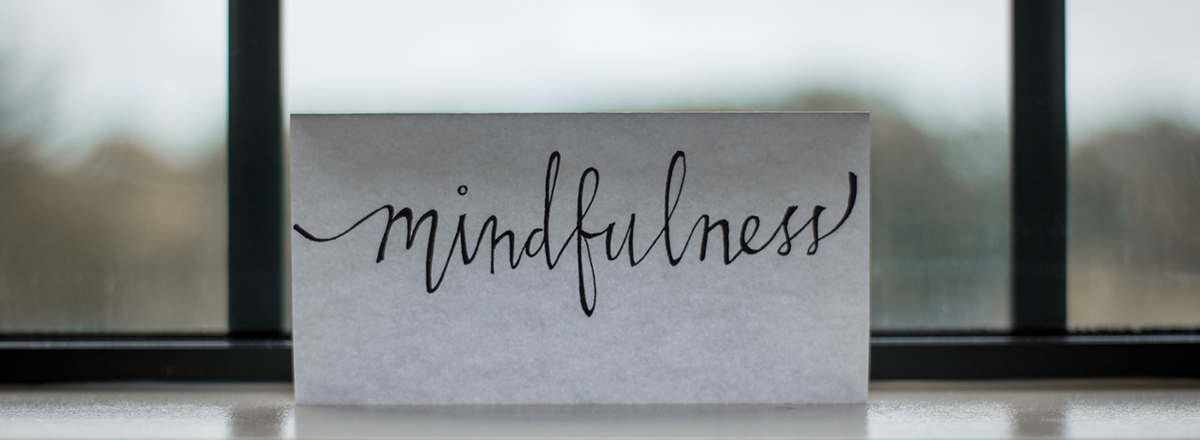Reuse packaging company, Reuseabox, announced as a finalist for the Small Business awards.
Reuseabox has been shortlisted for Britain’s best ‘Net Hero’ business.
Read MoreHave you ever arrived at work and realised you don’t remember anything of the journey? You are not alone!
We go through so much of life on automatic pilot, unaware of the present moment, caught up in worrying about the past or rehearsing for the future, stressed about whether we have done the right thing, and anxious about events that might never happen. It doesn’t need to be this way. We can wake up to the present; it just takes a bit of practice.
Where it was once a niche interest, “mindfulness” has exploded across the media in recent years, with articles in popular newspapers and magazines, books on mindful baking, running and knitting, and many apps have been developed to support the growing interest in taking up the practice. However, this has not necessarily led to a significant increase in understanding about what mindfulness is, and how to practice effectively. It is sometimes presented as a pancea for all ills, and as something which is effortless, and is synonymous with “chilling out”.
This is a pity, as regular practice of mindfulness is very effective in reducing the impact of stress, and in developing an approach to life which protects our mental and physical health.

Research tells us that mindfulness-based therapy is especially effective for reducing stress, anxiety and depression. Mindfulness can also help treat people with specific problems including pain, smoking and addiction.
Mindfulness based Cognitive Behaviour Therapy is included in the NHS national guidelines for the treatment of relapsing depression. It has also been found to improve physical health, with preliminary evidence that mindfulness might boost the immune system and help people recover more quickly from colds and flu.
The practice of mindfulness can have an impact on the workplace. Firstly, the leading cause of sickness absence in the UK is mental health difficulties, and employees who practice on a regular basis are supporting their mental well-being. Mindfulness practice also improves attentional focus. If we are less easily distracted at work, we are likely to be more productive.
As a result, many organisations are choosing to include the provision of mindfulness training as one aspect of their wellbeing strategy.
What do we mean by mindfulness?
One of the best definitions comes from Jon Kabat Zinn, who developed the Mindfulness Based Stress Reduction programme used within health settings in the USA and in the UK: it is simply “the awareness that arises from paying attention, on purpose, in the present moment and non-judgmentally”.
This sounds simple, but simple is not always easy. It is a practice which requires discipline to ensure that it is maintained.
Mindfulness practice as we currently know it has its origins in Buddhist meditation practice, going back 2,500 years.

Sitting meditation involves being still, alert and at ease, and observing sensations in the body and the breath, bringing the whole of our attention to this. As the mind then drifts off into some distraction, we notice when this happens, and bring our attention back to the body and the breath. We do this over and over as the mind likes to be busy and is easily distracted.
You don’t need to sit cross legged on the floor for this, it is fine to sit on an upright chair, with your eyes closed, or open, not focusing on anything in particular.
We can also practice mindfulness while moving, and if you find focusing on your breathing tricky to start with, then this might suit you better. Mindful Movement means moving with mindful attention on the movement, and the sensation in the body which accompanies the movement, which might be yoga, dance, or simply walking with full attention.
Another form of practice is to bring mindful attention to any activity, whether it be washing up, having a shower, or eating a sandwich. We simply bring all of our attention to what we are doing, moving slower than usual, and doing one thing at a time. What you are not doing is using the time to think about work, plan your day, or worry about what happened yesterday. This is about fully concentrating on the sound, smell, and feeling of what you are doing, really focusing on all of your senses while you do it.
There are also those times when you might be just sitting down with a cup of tea with some music on. Rather than do this and check your phone at the same time – really listen to the music and focus on tasting every sip of tea.
If you get the opportunity to just wander round the garden, noticing the plants and hearing the birds, leave the phone indoors, and don’t use the time to plan your next meeting – just be in the moment with whatever is there at the time.
Bringing the attitude of “non- judgement” is important – be kind to yourself and let go of criticising yourself, when your attention drifts away from the present moment. Just refocus and come back, over and over again..
If we use a mix of all of these practices, then introducing mindfulness does not need to take up a big chunk of time out of the day. You don’t have to sit and meditate for an hour at a time. A few minutes’ sitting, a couple of times a day, combined with bringing mindful attention to activities that are part of your usual routine can get you started and really make a difference.
Mindfulness does need to be practised on an ongoing basis though, as part of our everyday routine. Just as we brush our teeth to maintain our dental health, practicing mindfulness each day can help to maintain our mental health!
About Dr Carol Brady – Brady Consulting Ltd
Dr Carol Brady is a clinical psychologist, executive coach and organisational development consultant, with a particular interest and expertise in workplace well-being, and set up Brady Consulting Ltd following an NHS career of over 30 years, in which she was a senior clinician and latterly executive director of an NHS Trust.
She is one of our Leadership & Wellbeing experts and you can get one-hour FREE support, whether that be to discuss the challenges you are facing, how you can better support your staff or you just want a sounding board, they are here to help you.
Request a FREE one-to-one session with Carol by filling out the form here.

Reuseabox has been shortlisted for Britain’s best ‘Net Hero’ business.
Read MorePAB Languages Centre, a leader in providing comprehensive language solutions, has been named as a supplier on the KCS Procure...
Read MoreLog into your account
